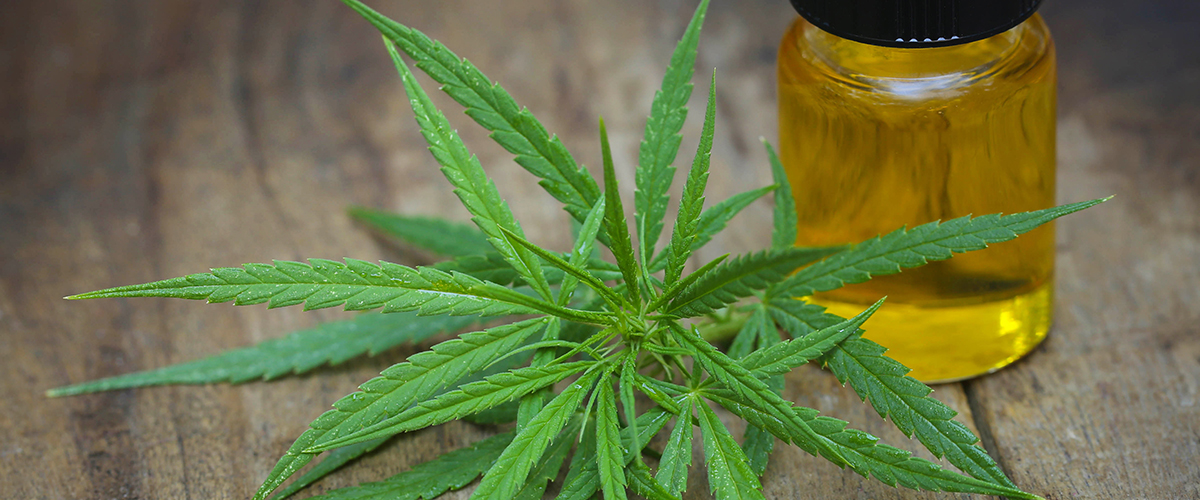Findings in a new study suggest that cannabidiol protects adolescents from experiencing any long-term negative psychiatric effects of THC.
Neuroscientists at Indiana University have found evidence that the non-psychoactive compound in cannabis called cannabidiol (CBD) protects against the potentially harmful effects of consuming tetrahydrocannabinol (THC) during adolescent years. In a new animal study published in Cannabis and Cannabinoid Research, adolescent mice that received CBD with THC didn’t experience the same negative effects as those that only were given THC.
Previous studies have found evidence that using high-THC during adolescent years can increase the risk of certain psychiatric disorders like schizophrenia. THC is the chemical in marijuana that causes a “high.” The findings in this new study not only suggest that CBD products are safer, but that adolescents can be protected from potential long-term effects of THC, provided the cannabis strains and products consumed also contain a notable amount of CBD.
“This study confirms in an animal model that high-THC cannabis use by adolescents may have long-lasting behavioral effects,” said the study’s lead author, Dr. Ken Mackie. “It also suggests that strains of cannabis with similar levels of CBD and THC would pose significantly less long-term risk due to CBD’s protective effect against THC.”
Mackie and his research team divided adolescent and adult mice into five separate groups. Three groups were given daily cannabinoid treatments of 3 milligrams per kilogram of body weight of THC, CBD, or a combination of THC and CBD. The remaining two groups were given either a placebo or no treatment. The treatment period lasted for three weeks.
All five groups were tested for anxiety, obsessive-compulsive behaviors, and impaired memory following the three-week treatment period and then again six weeks later.
The adolescent and adult mice given only CBD showed no negative behavioral side effects following the three weeks of treatment or six weeks after.
Mice given only THC, however, showed signs of impaired memory and increased obsessive-compulsive behavior immediately after treatment. Six weeks later, the adolescent mice within the THC group continued to experience those same side effects, while adult mice did not. Adults and adolescent mice given only THC experienced an increase in anxiety six weeks after treatment.
The adolescent and adult mice given both CBD and THC, like those given CBD alone, demonstrated no short- or long-term behavioral changes. The findings suggest that CBD is effective at preventing the risk of cognitive and behavioral dysfunction in adolescents that consume high levels of THC.
Previous studies have also found CBD to be beneficial for preventing or treating psychosis. Earlier this year, a research review found that the risk of psychosis from cannabis use is rare, partly because most strains contain enough CBD to offer protection. An animal study from this summer found CBD to be beneficial for managing symptoms commonly associated with schizophrenia like cognitive impairments and concentration and memory difficulties. Findings in a 2012 clinical trial even suggest CBD may be better at treating schizophrenia than most traditional antipsychotics.
“This is the first study in a rigorously controlled animal model to find that CBD appears to protect the brain against the negative effects of chronic THC,” Mackie said regarding his study’s findings. “This is especially important since heavy use of cannabis with higher levels of THC poses a serious risk to adolescents.”
The full study, “Chronic Adolescent Δ9-Tetrahydrocannabinol Treatment of Male Mice Leads to Long-Term Cognitive and Behavioral Dysfunction, Which Are Prevented by Concurrent Cannabidiol Treatment,” is available through Cannabis and Cannabinoid Research.
You can learn more about CBD and what research has so far discovered about its beneficial properties through our Research and Education page.






